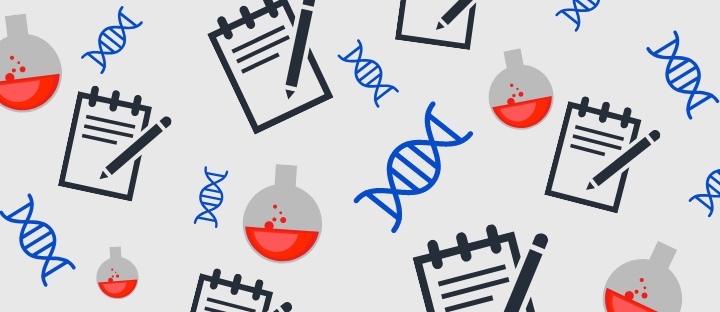#ScienceSaturday posts share relevant and exciting scientific news with the KAND community. This project is a collaboration between KIF1A.ORG’s Research Engagement Team Leader Alejandro Doval, President Kathryn Atchley and Science Communication Director Dr. Dominique Lessard. Send news suggestions to our team at impact@kif1a.org.
Recent KIF1A-Related Research
Cystatin B is essential for proliferation and interneuron migration in individuals with EPM1 epilepsy
Epilepsy is a common symptom of many neurodegenerative disorders. According to the Epilepsy Foundation, there are over 20 different classifications of epilepsy, each defined by types of seizures commonly seen, age when seizures commonly begin, part of the brain involved, usual course, genetic information, etc. This article advances our understanding of Progressive myoclonus epilepsy (PME) in a disorder known as PME of Unverricht–Lundborg type, or EPM1 for short. Mutation of the protein Cystatin B is one of the primary causes of EPM1. From this study, we learn more about the important role of Cystatin B in brain development as it relates to EPM1. Importantly, this study identified KIF1A as a transporter of Cystatin B in our brains; this is yet another KIF1A specific cargo that is added to our growing list. As we learn more about the role of KIF1A in the brain, we also are finding increasing reports of KIF1A’s link to epileptogensis, or the process in which the brain develops epilepsy.
Mutations in the KIF21B kinesin gene cause neurodevelopmental disorders through imbalanced canonical motor activity
KIF21B is a member of the kinesin-4 family of proteins. This kinesin molecular motor plays two important roles in our neurons: 1) transporting cargo, much like KIF1A and 2) regulating the dynamics, or lengthening and shortening, of microtubule roadways. In other words, KIF21B can act as both a cargo-carrying truck and a roadway construction crew in our neurons. Recently, a handful of mutations have been discovered in the KIF21B gene. This paper provides the first characterization of KIF21B mutations from a clinical down to a cellular level of investigation. At a clinical level, certain KIF21B mutations result in overlapping symptoms we see with KIF1A mutation, most notably hyper- and hypotonia.
Rare Disease News
Michelle McMurry-Heath, M.D., Ph.D., named President and CEO of the Biotechnology Innovation Organization
Michelle McMurry-Heath, M.D., Ph.D., has been named the incoming President and CEO of the Biotechnology Innovation Organization (BIO). BIO is the “world’s largest trade association representing biotechnology companies, academic institutions, state biotechnology centers and related organizations across the United States and in more than 30 other nations.” BIO plays a highly impactful role in the research and development of new therapeutics and clinical trials.
Dr. McMurray-Heath brings with her an extensive resume of training, experience, and numerous leadership roles. Above all, Dr. McMurray-Heath is a vocal advocate for the role of social justice in scientific advancement. As she stated in an interview with STAT news,
“Science is the social justice issue of our age… making sure that knowledge gets out to the people who need it, that, to me, is a justice issue.”
Dr. McMurray-Heath: all of us here at KIF1A.ORG are ecstatic to hear of your appointment and can’t wait to see how your leadership positively impacts the rare disease community.
A secret experiment revealed: In a medical first, doctors treat Parkinson’s with a novel brain cell transplant
This week we are featuring a longer, but well-written narrative, detailing the progress of patient-derived stem cell treatments for Parkinson’s disease. Following this process from idea to reality (and many steps in between), this article highlights the magnitude of therapeutic impact that can happen when philanthropy, science, cutting-edge medicine, and the right minds all align at the same time to work on a unifying problem. If you are able to this weekend, take some time to dive into this hopeful story.
Alpha Cognition Inc. Announces Granted EU Patents and Orphan Drug Designation for Its Progranulin Platform
Alpha Cognition Inc. (ACI), a clinical stage biotech company engaged in neurological disease research, has been granted two patents in the EU and FDA Orphan Drug Designation in the U.S. for the use of progranulin in therapeutic treatment. Progranulin is a protein found in the cells of our nervous system, and other regions of our body, that plays an important role in cellular growth, survival, and repair. Progranulin has been on neuroscientists’ radar for a long time, as alternations of progranulin have been linked to certain forms of dementia. However, the potential benefit of progranulin as a therapeutic agent is a newly emerging concept within the neuroscience field.

